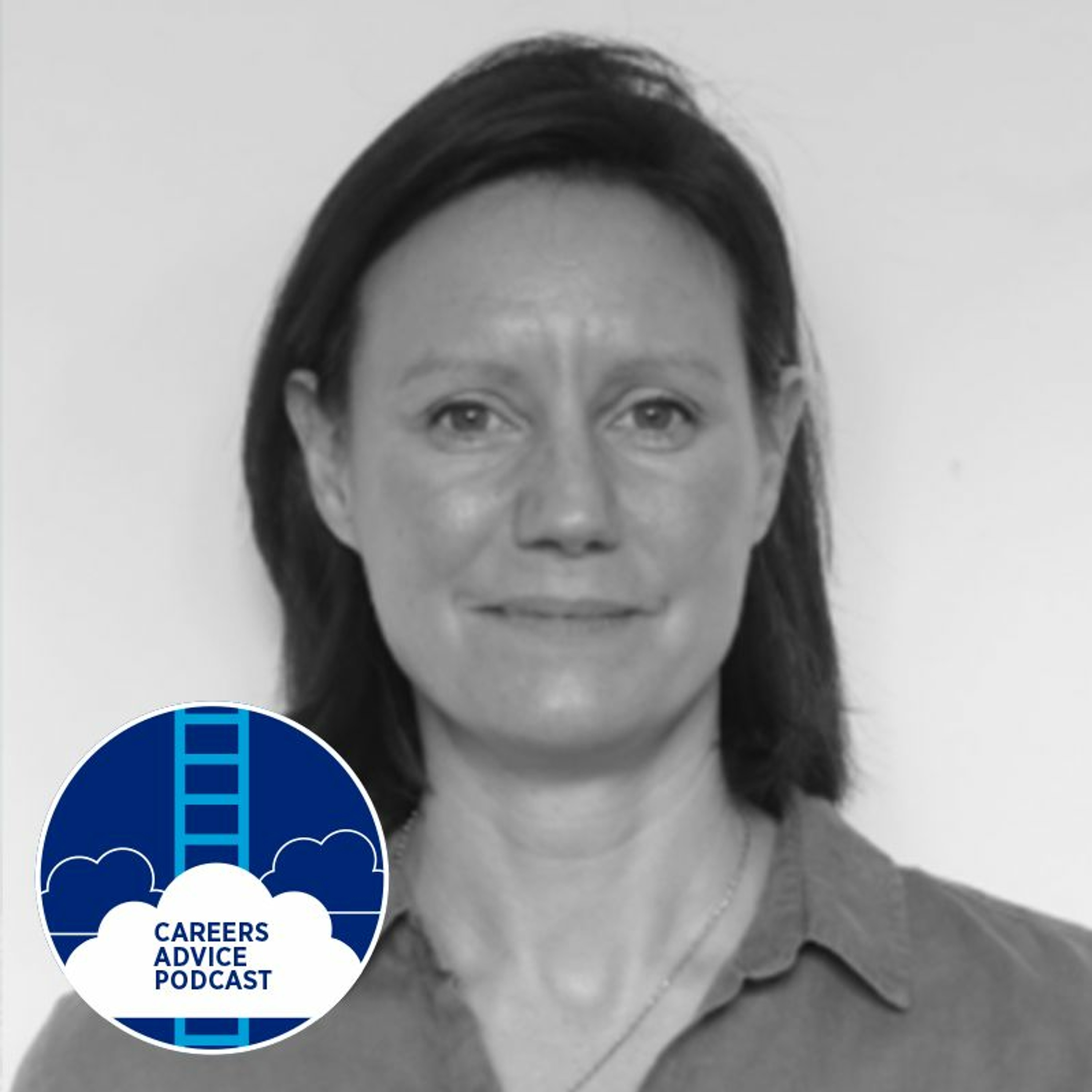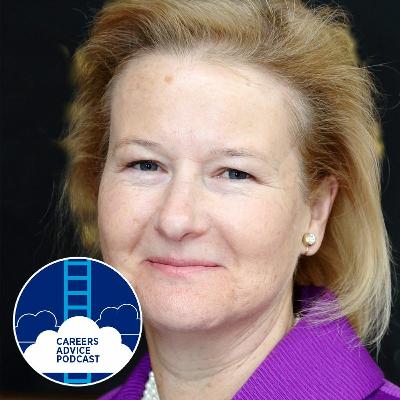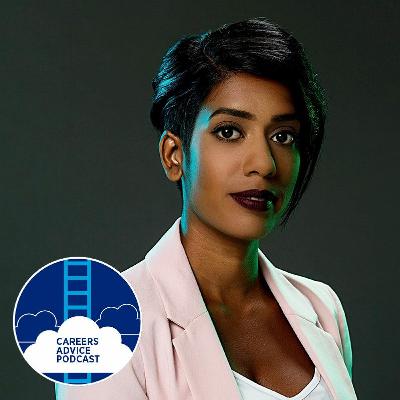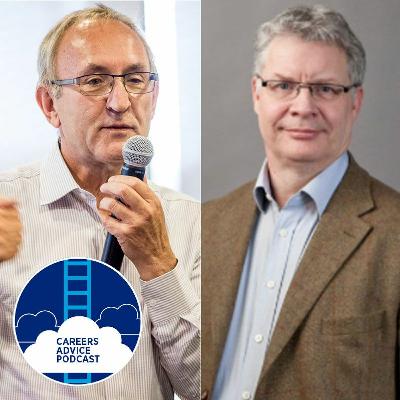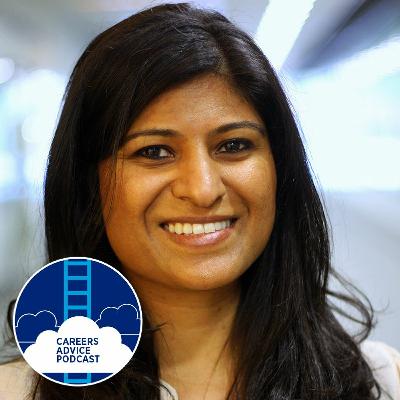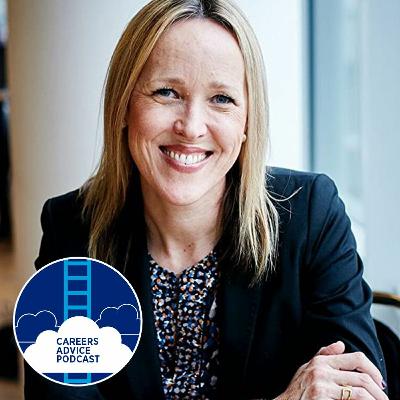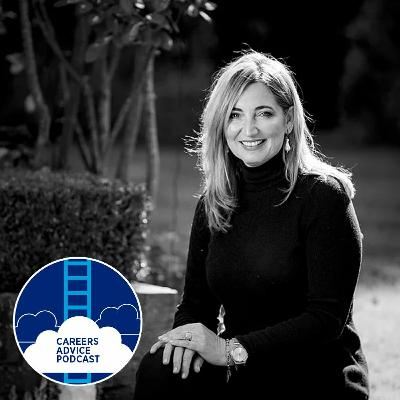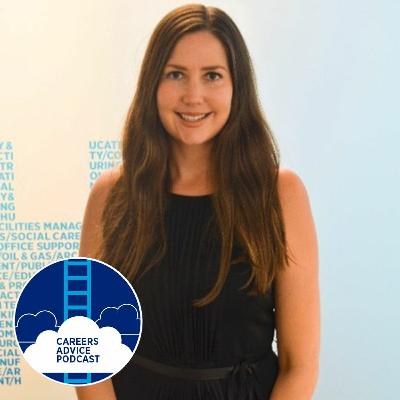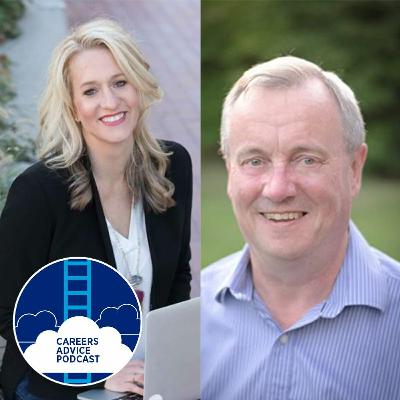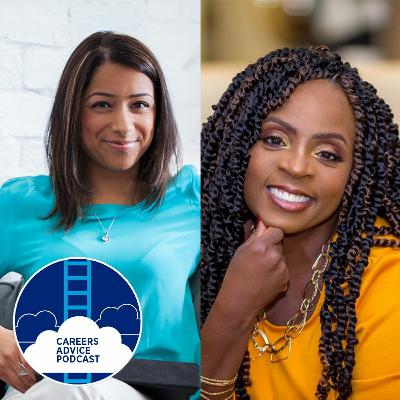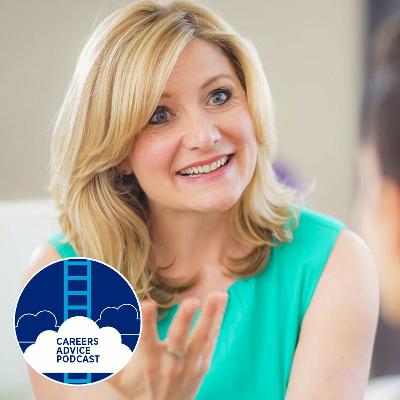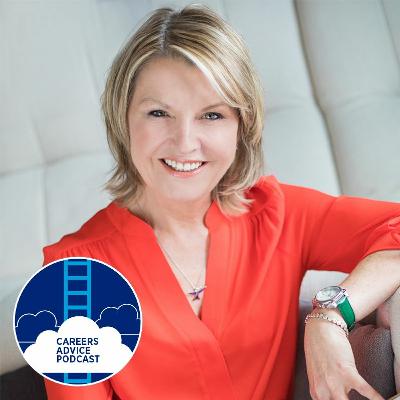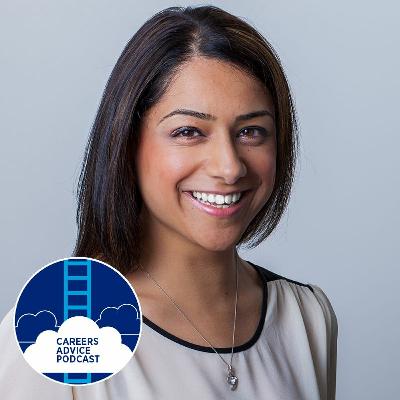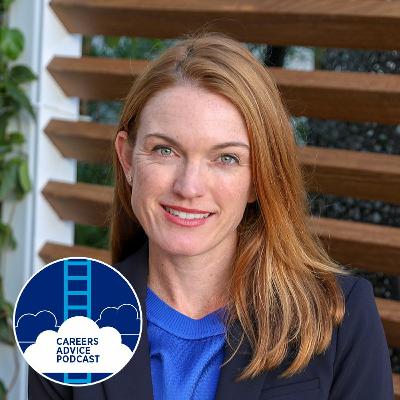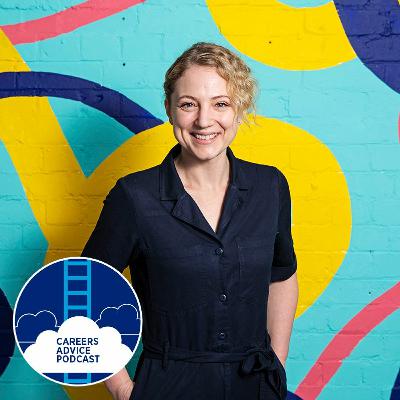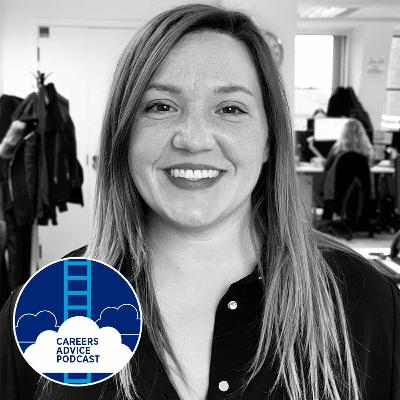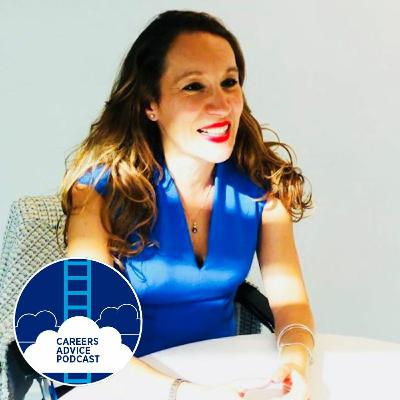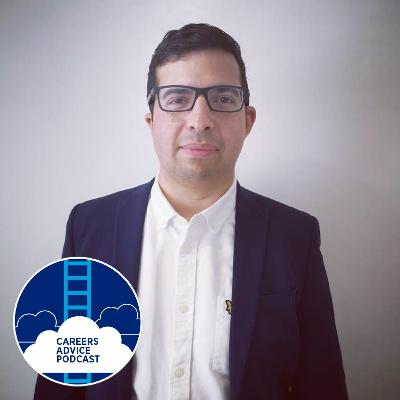Discover Hays Worldwide - Careers Advice Podcast
Hays Worldwide - Careers Advice Podcast

Hays Worldwide - Careers Advice Podcast
Author: Hays
Subscribed: 87Played: 1,486Subscribe
Share
© All rights reserved
Description
Looking for a new job or keen to progress your career? Listen and subscribe to our monthly podcast for expert, up-to-date careers advice delivered straight to your device - from perfecting your CV and preparing for a job interview, to creating a strong personal brand and standing out from the crowd.
We are the world’s leading recruitment experts. Last year we placed 70,000 people in to permanent jobs and over 240,000 people in to temporary roles.
For more expert careers advice, visit our blog: www.haysplc.com/viewpoint
We are the world’s leading recruitment experts. Last year we placed 70,000 people in to permanent jobs and over 240,000 people in to temporary roles.
For more expert careers advice, visit our blog: www.haysplc.com/viewpoint
48 Episodes
Reverse
46: Finding a career in sustainability - Fiona Place
Ahead of World Environment Day on June 5th, in this episode we meet Hays’ very own Global Head of Sustainability, Fiona Place.
Having worked in a number of roles related to sustainability, Fiona is in a perfect position to advise listeners on finding a job within the sector. She shares her own career story, as well as broader insights on the skills required to succeed, current trends and what to look for in potential employers.
45: Why a career map is important for women - Kathryn Bishop CBE
In this episode, we meet Kathryn Bishop CBE, who, amongst other achievements, is a consultant and teacher at the Saïd Business School at the University of Oxford. Kathryn is author of 'Make Your Own Map: Career Success Strategy for Women', and discusses why mapping your career is so important.
44: How employees can push for greater diversity & inclusion in the workplace - Sheree Atcheson
In episode 44 of the Hays Worldwide Careers Advice Podcast, we are joined by multi-award winning leader and ED&I expert Sheree Atcheson. Sheree offers advice to listeners on how they can find the confidence to shape a diverse and inclusive workplace.
43: How to develop mental toughness in the workplace - Doug Strycharczyk & Dr Peter Clough, AQR International
In this podcast, Doug Strycharczyk and Dr Peter Clough of AQR International discuss the insight from their book, 'Developing Mental Toughness', and how mental toughness can affect your performance in the workplace and when searching for a new job.
42: How to improve your presentation skills - Jay Surti
In this podcast, keynote speaker and author, Jay Surti, shares the dos and don’ts of giving presentations at work, as well as how best to tackle any fears or difficult scenarios.
Are you struggling to find real meaning in your working life?
Listen to this podcast from Shannon Houde, Founder and Managing Director of Walk of Life Coaching for expert advice to help you make a difference in your career.
You can also read the full transcript here: https://social.hays.com/2021/06/30/podcast-41-how-to-find-meaning-in-your-work/
Timestamps:
(01:08) Please could you introduce yourself to our listeners and give an overview of your career to date?
(02:00) So, you've had quite a varied career. Did that lead into your interest in career purpose and to write your book Good Work as well?
(02:56) How have you personally found meaning in your own career?
(03:51) And in your book, you begin by exploring the concept of impact careers. Could you just explain to our listeners what you mean by this in a little more detail?
(05:07) Why is it so important that we find purpose and meaning in our jobs? And do you think, this need to find meaning has grown because of the pandemic?
(07:02) Is there anything that you can tell our listeners now on how they can find a sense of purpose in their day-to-day roles?
(08:18) What would you say to those that are struggling to find meaning in their current roles?
(09:43) Are there any strategies you can share with our listeners that they can follow to find an organisation that matches their personal values and traits? And how important would you say it is for them to do that?
(12:11) So, if a person has decided to search for meaning elsewhere, in a new job, for instance, how can they effectively demonstrate their commitment to the employer’s purpose on their CV or during the interview stage perhaps?
(14:38) If you had one piece of advice to help our listeners navigate their careers throughout the pandemic and beyond, what would that be?
40: How to fail well and build your resilience at work – Dr Susan Kahn, Business Psychologist
In this podcast, Business Psychologist, Author of Bounce Back and Programme Director at Birkbeck, University of London, Dr Susan Kahn, shares her expert advice to help you embrace failure in order to build resilience in the workplace.
You can read the full transcript here: https://social.hays.com/2021/05/19/podcast-40-how-to-fail-well-and-build-your-resilience-at-work/
Timestamps:
(01:09) Please could you introduce yourself to our listeners?
(02:10) What sparked your interest in resilience, and led you to write the book Bounce Back?
(03:08) You mentioned a concept in your book of ‘failing fast’, which is a framework that allows employees the space to make mistakes. Could you explain this concept in a little more detail?
(04:19) Why else do you think it's so important that employees embrace failure?
(05:06) How can our listeners embrace failure and learn from their mistakes? And what effect could this have on their careers potentially?
(06:27) Please could you share with our listeners how you define the term resilience?
(07:52) What are the key benefits of resilience? And do you think this is becoming even more important as we find ourselves in this ever-changing world of work?
(09:09) What do you think the typical traits of a resilient person are?
(10:48) What can our listeners do to develop their own resilience? And do you have any strategies that they can follow that would help them achieve this?
(13:45) It seems that self-awareness is important to developing resilience, would you agree?
(14:53) Is there anything else that our listeners can do in addition to what you've already discussed, to build their resilience?
(15:42) If you had one piece of advice to help our listeners navigate their careers throughout the pandemic and beyond, what would that be?
39: How to build your career plan – Eliza Kirkby, Hays Australia
In this podcast, Eliza Kirkby, Regional Director at Hays Australia, shares her expert advice on how to effectively develop a career plan in order help you meet your goals.
You can read the full transcript here: https://social.hays.com/2021/04/13/podcast-39-how-to-build-your-career-plan/
Timestamps:
(01:27) Please could you introduce yourself to our listeners?
(03:21) Have you followed a career plan yourself to help you get to where you are today?
(04:32) Could you explain exactly what a career plan is and what the benefits are of creating one?
(06:00) What time period should a career plan cover? Should you have one for one year, five years, ten years? Should you have multiple career plans that span a certain length of time?
(07:49) What should your first steps be if you're writing a career plan from scratch or if you're revisiting one that you've already written?
(09:26) How important is it to set realistic SMART goals and objectives?
(10:56) I’d imagine conducting an analysis of which skills are in demand is crucial when career planning. Could you give us some examples of which skills will be crucial to succeed in the future of work?
(13:21) Throughout the last year or so, one of the only certainties has been change. Do you think that change has made career planning more difficult?
(14:55) Would you say it's important for listeners to be open-minded and flexible when it comes to following their career paths? Is it okay if we move away from them from time to time to focus on other things perhaps?
(16:41) For those of our listeners who had a career plan in place but have been impacted by redundancy or change in circumstances, how would you recommend they go about resetting and reviving their plans?
(19:06) And on the other hand, are career plans still helpful even if you're satisfied with your current career?
(20:05) And for those of our listeners who may have been working towards a promotion which has been put on hold due to the pandemic, how can a career plan help to get them back on track?
(22:07) If you're hoping to progress in the current company that you're in, should career planning be done on your own or should it be done in conjunction with your manager?
(23:21) What advice would you give to those that feel as though they're not getting the support they need from their manager?
(25:17) What would you recommend listeners do to ensure that they feel motivated to remain on track?
(26:36) How can listeners track their progress to maintain motivation?
(28:30) If you had one piece of advice to help our listeners navigate their careers for out of the pandemic and beyond, what would that be?
38: The five key competencies marketers need to stand out in their careers - Shake Marketing
What are the key competencies marketeers need to elevate their careers? Listen to our podcast featuring Stacey Danheiser and Dr. Simon Kelly, Principals of Shake Marketing Group to find out.
You can read the full transcript here: https://social.hays.com/2021/03/23/podcast-five-competencies-marketers-need-stand-out-careers/
Timestamps:
(01:02) Please could you introduce yourselves to our listeners?
(02:13) You've both recently released your new book called ‘Stand Out Marketing’. Could you tell us a little bit more about the book and the research that you've conducted around the topic?
(03:25) And in your book, you mentioned the fact that marketing is ‘swimming in a sea of sameness’. Could you explain the concept in more detail?
(04:44) Standing out from the crowd is key to marketing, so in the context of your book, could you please talk us through why that is essential?
(06:20) Which competencies do you think marketeers of today are lacking when it comes to standing out from the crowd?
(08:14) We'll go through each of those elements starting with visionary. What does it mean for marketeers and how can they demonstrate this competency effectively?
(10:56) And talking about the acceleration of technology and being a disruptor, how can marketeers generate creative and innovative ideas that can help their organisations to move forward, or stand out? Do you have any tips?
(13:04) If we could look at the second competency which is activator, that's about, bringing those ideas to life and activating them. How can marketeers go about getting their ideas heard by their managers to progress or to execute in a vision for change?
(15:13) And how can marketeers become more adaptable to modify their strategies accordingly?
(16:19) I guess then, a blocker to doing things differently could be, a person's organisation being quite unwilling or resistant to change. What advice would you give to someone in that position?
(18:10) Why is it so important for marketeers to upskill to keep on learning and developing, especially in this new era of work that is constantly accelerating with changes?
(20:00) I imagine there's a real risk of being left behind if you don't carry on learning throughout your career?
(21:18) Do you have any tips for our listeners to help them effectively upskill in a way that perhaps works for them?
(25:01) As the expectations that are placed on marketing functions continue to increase in this new era of work, marketeers are understandably under a lot of pressure to prove the value of their role in order to demonstrate their usefulness, which brings us on to that term. How can they prove their usefulness effectively?
(28:01) How can marketeers effectively prove their value without suffering from burnout?
(30:12) How important is it for marketeers to assess and analyse whether their activity is having the desired impact?
(33:00) And do you think that the need for these competencies in marketing has increased with the COVID-19 pandemic? And do you think the importance will continue into the new era of work?
(36:57) If you had one piece of advice to help our listeners navigate their careers through the pandemic and beyond, what would that be?
37: The experience of women of colour in today’s corporate world - Simi Rayat and Rhonda Williams
In this podcast, Leadership Coach, Simi Rayat and Rhonda Williams, CEO of Dream Life Academy share the key challenges women of colour face in their careers and how to best overcome these obstacles.
You can also read the full transcript at: https://social.hays.com/2021/03/04/podcast-37-experience-women-of-colour-corporate-world/
Related content:
• Four ways women can be braver, bolder and more successful - https://social.hays.com/2017/03/07/four-ways-women-can-be-braver-bolder-and-more-successful/
• How one organisation helps disadvantaged women get back into work - https://social.hays.com/2019/11/05/organisation-helps-disadvantaged-women-work/
• Podcast 19: Why D&I is important right now, and as we enter the new era of work - https://social.hays.com/2020/07/13/why-diversity-important-throughout-covid-crisis/
• When applying for a job, who are more confident – men or women? - https://social.hays.com/2018/08/20/job-confident-men-women/
Timestamps:
(00:57) Please could you introduce yourself to our listeners?
(02:27) Rhonda, what has been your experience of being a woman of colour in the corporate world?
(04:04) Do you think your experience has changed in any way during the pandemic?
(05:06) What impact do you think that Black Lives Matter and the growing polarisation especially that the US has had?
(06:30) For those listening who may be of other genders or races, how can they go about truly understanding what the unique experience of women of colour in their organisations are and how important is it that they proactively do this?
(09:13) In 2020, it was reported that of all the Fortune 500 CEOs, only 1% were black, 2% were Asian, 2% were Latino and 5% were women. So, there's obviously a lot of work that needs to be done. What do you think had led to this and what impacts does this lack of representation have on the careers and outlook of those just starting out in the world of work?
(11:42) Is the notion of "only-ness" a challenge for women of colour? So, for example, being acutely aware that you are the only person in the room that looks like you. What impact can that have?
(15:22) Simi, we hear a lot about the importance of bringing your authentic self to work every day. Do you think that women of colour in particular struggle to do that? And if so, why, and what other barriers that they face? What steps can they take to overcome these?
(19:34) Do you think there are any other issues and unique challenges women of colour are facing in the workplace right now and how can these be tackled?
(23:24) Do you think that women of colour feel they can't easily call out bias or inequality that they may be experiencing?
(27:58) How important is sponsorship in helping women of colour progress in their careers and how can those that are listening to this podcast go about seeking out sponsorship?
(30:47) What role do allies at work play in helping women of colour and how can our listeners be an ally in the workplace?
(34:13) What is the one piece of careers advice that you would give to our listeners today?
36: How to build self-confidence and succeed in your career - Jo Emerson, Self-Confidence Coach
Is a lack of self-confidence negatively impacting your career? Listen to our podcast featuring award winning coach Jo Emerson, who shares her expert advice to help those looking to increase their self-confidence at work.
You can also read the full transcript at: https://social.hays.com/2021/02/10/podcast-36-how-to-build-self-confidence/
Timestamps:
(00.50) Please could you introduce yourself to our listeners?
(01:34) Please could you tell us what self-confidence encompasses and why it's so important to career success?
(04:00) What would you say are the signs that someone might have low self-confidence at work?
(05:35) You mentioned one of the main signs being someone not being able to look you in the eye. And in the context of the world that we're in at the moment where we've got frequent Zoom and Microsoft Teams calls, I imagine that it's even harder to identify?
(07:18) And if we look at what the main causes of poor self-confidence are, you mentioned in your answer before that people might think that they're not good enough. What are the main causes of poor self-confidence?
(11:26) I imagine over time that continuous self-doubt could potentially snowball and would be damaging to an individual and their long-term self-confidence. Would you agree?
(13:53) People's self-confidence has no doubt been negatively impacted by the pandemic. As we said, everybody's situation is unique to them and everybody's dealing with various challenges. Could you explain some of the potential reasons behind this and how this lack of self-confidence could manifest itself in people's careers over time?
(16:31) I imagine doing something such as a career date as you mentioned, might give you a boost in confidence from being able to do that in your own home behind a camera when you're in a safe space too?
(17:33) Is there any way of knowing what the long-term impact that it could have on a person's career?
(21:15) Many young professionals with limited experience of the workplace may have lacked self-confidence before the pandemic and there's the potential now that their feeling has only increased over the course of the crisis. What advice would you give to help them boost their self-confidence?
(24:52) For those of our listeners who are applying for new roles but feel less confident when it comes to interviewing, whether that's remotely or face-to-face when we get to that stage again, how can they address their concerns and become more confident during their interview process, from the preparation through to the actual interview itself?
(28:30) So, if someone's followed your great advice, they've passed the interview stage, they've been offered the job and they're about to begin it and they're obviously starting their new job remotely. Is there any advice that you could give people to keep that self-confidence going, it must be a strange thing to start a new job remotely?
(31:27) So, we spoke at the very beginning about maintaining eye contact. Is there any way that our listeners can work on that to ensure that they're communicating in a confident and effective way when they're on video calls and meetings remotely?
(35:38) And for those in a similar situation who are experiencing nerves when preparing for a presentation or speaking in front of other people, do you have any top tips on how they can work on their confidence and what impact will this have on their presentation skills?
(40:59) We're onto our last question and this is a question which we ask all our podcast guests. If you had one piece of advice to give to our listeners to help them navigate their careers throughout this pandemic and beyond what would that be?
In this podcast, Transformational Wellbeing Coach, Rosalyn Palmer shares her expert advice to help those that are looking to shine and secure their long-term career progression in the new era of work.
You can read the full transcript here: https://social.hays.com/2020/12/01/podcast-35-shine-working-remotely/
Related content:
• Desperately seeking my work mojo – last seen March 2020: https://social.hays.com/2020/09/07/desperately-seeking-work-mojo/
• How to prove your value without burning yourself out: https://social.hays.com/2020/06/30/prove-value-without-burning-out/
• Podcast 32: How to manage career change and uncertainty as we enter a new era of work: https://social.hays.com/2020/08/14/podcast-32-manage-career-change-uncertainty-enter-new-era-work/
Timestamps:
(01:06) Please could you introduce yourself to our listeners?
(02:21) What impact do you think hybrid or remote working is having on career progression and development?
(03:38)I’d imagine for younger employees; remote working will be more difficult by the fact that they're unable to learn from colleagues without that face-to-face guidance. Is it possible that it's impacting generations differently?
(06:01) With the reduction in face-to-face visibility, it can understandably be very difficult to prove your value in your role to your team and to the wider organisation. Do you have any tips to our listeners on how they can successfully prove their worth?
(09:17) How can our listeners go about communicating success and progress on projects to maintain visibility whilst working remotely?
(10:48) How do you think video communication is impacting professional relationships and how is that affecting career development?
(16:12) How important do you think strong written verbal communications is to succeed when working remotely. For example, is how you communicate via email and instant messaging platforms, just as important as verbal communications?
(18:10) We've spoken about adapting to this new world. Do you think the way in which performance is measured is changing or do you think if it hasn't or isn't already, we can expect it to change with more employees now working remotely?
(20:04) What advice would you give to those who may have been on a promotion path before the pandemic and have perhaps found that progress has stalled?
(22:28) I imagine that advice applies to people who would like to be considered for a promotion as well, but maybe aren't at the moment. For those people, how can they go about sharing their career goals with their manager?
(24:27) Do you think this shift to remote working has led people to feeling like that they're lacking their work mojo, and why do you think this is?
(28:51) Talking about not being able to interact with colleagues and perhaps losing your work mojo. What impact do you think this could have on your career progression going back to that point?
(30:54) How can those suffering (from changing restrictions) combat that?
(36:11) For those that feel their role has become redundant in the new era of work, what's the best way to address this and find the value that they could bring to the organisation?
(39:19) How important is it for our listeners to upskill to demonstrate their willingness to learn and how could they go about this? Do you have any advice around that?
(43:10) I'd imagine that now is a crucial time for our listeners to be building their personal brand too to maintain visibility. Do you have any tips on that which you can share about how listeners can effectively do this and build their personal brand out?
(45:57) If you had one piece of advice to help our listeners navigate their careers through the pandemic and beyond what would that be?
34: The impact of COVID-19 on B2B marketers’ careers - Shake Marketing
In this podcast, Stacey Danheiser and Dr. Simon Kelly, Principals of Shake Marketing Group share their expert advice on how B2B marketers and their roles have been impacted by the pandemic and how they may evolve in the new era of work.
You can read the full transcript here: https://social.hays.com/2020/11/19/podcast-34-the-impact-of-covid-19-on-b2b-marketers-careers/
Related content:
• 12 uplifting changes COVID-19 could bring to the world of work: https://social.hays.com/2020/08/18/uplifting-change-covid-19-world-of-work/
• Lessons from a crisis: Why continuous learning is key to emerging from the COVID era successfully: https://social.hays.com/2020/10/21/why-continuous-learning-key-emerging-from-covid-era-successfully/
• Will COVID-19 change our attitudes to work? https://social.hays.com/2020/06/08/will-covid-19-change-attitudes-to-work/
Timestamps:
(01:10) To begin with, please could you introduce yourself to our listeners? Stacey, we'll begin with you.
(01:51) And Simon, how about you? Could you give us an introduction?
(02:46) And do you think customer expectations and behaviours have changed fundamentally for good because of the pandemic, and how is this impacting the role of the B2B marketeer and the work that they do?
(04:44) Stacey, how has the crisis led marketeers to re-evaluate and reconfigure their marketing strategies?
(07:25) Taking all these changes into consideration, do you think that the basics of marketing will still hold true in the new era of work or will they need to be revised to ensure that businesses are able to thrive?
(09:06) Do you think that there's been a shift from the reactive firefighting which we saw at the beginning of the pandemic to a more strategic, long-term thinking within marketing teams?
(09:59) And how will customer value change and impact the tactics that marketers use?
(11:27) Simon, do you have any examples of brands who have done this effectively?
(13:43) What do you think have been the key challenges for B2B marketeers’ as we transitioned through this pandemic?
(15:57) What do you think will be the main obstacles for marketeers over the next year or so, as we continue to navigate through the current crisis?
(17:09) Stacey, which skills do you think will be most important to ensure a successful career in B2B marketing in the future?
(19:24) How can marketers go about effectively upskilling to learn or demonstrate some of these key traits that you just mentioned?
(20:28) And Simon, do you think certain marketing roles will become more important in this new era of work?
(22:39) If you had one piece of advice to help our listeners navigate their careers through the pandemic and beyond, what would that be?
(23:53) Finally, the same question to you Stacey. If you had one piece of advice to help listeners navigate their careers throughout the crisis and beyond what would that be?
33: How Gen Z can maintain good mental health as they build their careers - Simi Rayat
In this podcast, Leadership Coach, Simi Rayat shares her top tips on how Gen Z can look after their mental health as they start to build their careers.
You can read the full transcript here: https://social.hays.com/2020/10/09/podcast-33-how-gen-z-can-maintain-good-mental-health-as-they-build-their-careers/
Related content:
• Hays Journal 19 Podcast: How meditation can benefit your career: https://social.hays.com/2020/10/04/hays-journal-19-how-meditation-benefit-career-megan-jones-bell-headspace/
• How can leaders unlock the careers of the 'lockdown generation'?
• How to look after your mental health in a world of ever-changing COVID-19 resrictions: https://social.hays.com/2020/10/01/how-to-look-after-mental-health-ever-changing-covid-19-restrictions/
• How to stop feeling so nervous about starting your new job: https://social.hays.com/2019/09/26/stop-feeling-nervous-starting-new-job/
Timestamps:
(01:13) It would be great if you could introduce yourself to our listeners.
(01:52)Could you give an explanation as to what we mean by the term mental health?
(02:58) We’ve all been impacted in different ways by the pandemic, each of our experiences are unique to us, and in some cases the pandemic will have undoubtedly had a negative impact on people's mental health. But do you think there have been any differences in experiences between generations?
(06:12) In what ways do you think the pandemic has impacted young people, which may be different from other generations?
(07:46) Do you have any advice to any of Gen Z on how to cope with the persistent and long-term uncertainty that they're probably feeling right now?
(11:24) Would you say that Generation Z were already suffering from poor mental health before the pandemic? And if so, what has been causing this historically?
(14:37)What are the unique challenges that Gen Z face and how can they overcome them?
(16:57) I've heard of a term post-graduation depression. What are the common signs of that? And do you think it might be more common amongst the class of 2020? And how can our listeners start to overcome it if they are experiencing it?
(19:27) Sustained periods of national lockdowns around the world have led many to experience anxiety, but focusing on young people, what advice would you give to those that are experiencing this and are perhaps feeling nervous about an upcoming interview or starting their first job?
(21:01) For those experiencing self-doubt right now, perhaps if fuelled by comparing themselves to their peers, how can listeners re-frame their negative self-deprecating thoughts to ensure their first steps into the world of work are as positive as possible?
(26:27) It's clear that self-care in maintaining good mental health is essential to achieving that, and we've been fortunate enough for you to share tips on how you can maintain that. Is there anything else that you would add or advise that would be relevant to Gen Z?
(29:27) World Suicide Prevention Day took place last month and it's well publicised that men are far more likely to die from suicide than women. Do you have any advice for young men who may be listening and perhaps struggling with their mental health at present?
(31:47) If you had one piece of careers advice to help our listeners navigate their careers through the pandemic and beyond, what would that be?
Hays Journal: How meditation can benefit your career – Dr Megan Jones Bell, Headspace
In this Hays Journal podcast, Dr Megan Jones Bell, Chief Strategy and Science Officer at Headspace shares how meditation and mindfulness can improve your overall mental health and wellbeing, in both your personal and professional life.
You can read the full transcript here: https://social.hays.com/2020/10/04/hays-journal-19-how-meditation-benefit-career-megan-jones-bell-headspace/
Read 'Tailoring mental health support for your employees - lessons from Headspace' in the latest Hays Journal to find out more: https://social.hays.com/2020/10/06/tailoring-mental-health-support-for-employees-lessons-from-headspace/
Related content:
• Become more mindful, inside, and outside of work: https://social.hays.com/2018/10/09/mindful-work/
• The ABC of managing our wellbeing in an uncertain world: https://social.hays.com/2020/04/15/managing-wellbeing-in-uncertain-world/
• Using mindfulness to improve how we work together: https://social.hays.com/2018/06/05/mindfulness-improve-workplace/
Timestamps:
(01:08) It would be great if you could introduce yourself to our listeners, telling us a little bit about Headspace and the work that you do there.
(02:34) What sparked your passion for supporting mental health and working in that area?
(04:10) And have you seen attitudes change towards mental health in the workplace since the beginning of the pandemic? And if so, how has this impacted Headspace?
(06:03) Well, it's great to hear that it's accelerated and that attitudes and the stigma associated with it has been tackled, and we're allowing people to be vulnerable and have these discussions. Do you think this is a positive trend that will continue for employees in the future going forward as well?
(07:29) You mentioned some of the benefits that companies are offering there. And according to the 2020 mental health trends report by Headspace, which was released in August, 89% of workers, think that their company should be offering mental health benefits to their employees. What have you found that organisations are doing to support their employees to practice good mental health?
(11:00) Could you give us a quick introduction as to what you mean by meditating and recommend how someone completely new to meditation could get started?
(14:15) You mentioned some of the benefits just now, but are there other examples of benefits that meditation can provide on both a personal and professional level?
(16:20) Do you think meditation could help people to be more successful in the new era of work where creativity, adaptability and problem-solving are set to become more important as we have to deal with more changes and adapt?
(18:40) So, it certainly seems that being mindful can help professionals be more successful in their career?
(19:12) For those of our listeners who are currently managing busy schedules inside and outside of work, how would you recommend they go about finding the time to fit in that meditation into their day-to-day lives and their work routines as well?
(22:10) You mentioned some companies that are promoting meditation programs, do you have any examples of organisations that have effectively implemented those programs to help support their employees? And what impact has this had on their workforce?
(24:52) It's obvious that meditation can have immense benefits and I would recommend our listeners do try it. But some of our listeners might not feel like it's right for them, even after they've tried it. So, what can they do to become more mindful?
(26:36) If you had one piece of advice to help our listeners navigate their careers right now, what would that be?
32: How to manage career change and uncertainty as we enter a new era of work - Sarah Ellis
In this podcast, Sarah Ellis, co-founder of professional training and consultancy business; Amazing If shares her advice on how to effectively manage career change and uncertainty as we enter a new era of work.
You can read the full transcript at: https://social.hays.com/2020/08/14/podcast-32-manage-career-change-uncertainty-enter-new-era-work/
Timestamps:
(01:11)To begin with, please could you give a quick introduction for our listeners?
(02:13) You're the host of the Squiggly Careers podcast and author of the Sunday Times bestselling book, The Squiggly Career. Could you just explain to our listeners what you mean by the term Squiggly Career?
(04:34) Would you say now due to the pandemic that careers will become even more squiggly or more common as we enter this new era of work?
(07:43) How do you think people are generally feeling about their careers at the moment? What are the most common concerns, challenges, and questions that people have been raising with you over the past few months?
(09:51) You mentioned uncertainty and change which seems like a common trend and it's completely understandable. Some may be experiencing redundancy of course, restructure or uncertainty around how their current role might look going forward. What advice do you have for listeners to help them navigate this kind of unexpected change?
(15:52) You mentioned at the start about change being different if you initiate it yourself. So for instance, if you are initiating that change yourself perhaps by finding a new role or changing careers entirely, do you think now is a good time to do this and what advice can you share to help our listeners?
(22:32) You mentioned earlier the importance of having the confidence to make a change. But touching on career confidence more generally, it seems as though many are experiencing a lot of self doubt right now, understandably, regardless of their situation. Would you agree with that and how can listeners build themselves back up if they're experiencing this?
(27:49) I really like what you said about documenting those small wins and reminding yourselves of that but sharing them with colleagues as well. And probably linked to the last question for those who are currently in full time employment, who are no doubt extremely busy dealing with the day-to-day and perhaps feel under pressure to somehow prove their worth. What advice would you give those listeners who are perhaps dealing with that?
(32:30) Do you think this is an especially difficult time for those whose identities are very closely linked to their job?
(35:36) A lot analysis and reporting has focused on the fact that young people are being badly hit by the pandemic from a career and employment point of view. How can those that are about to begin their journey into the world of work ensure they start out on the right foot despite these hurdles?
(39:35) Lastly, if you had one piece of advice on top of all the great advice that you've given us today to help our listeners navigate their careers through the pandemic and beyond, what would that be?
31: Worried about returning to the workplace? Here’s how to tackle your anxieties - Emma Mamo
In this podcast, Emma Mamo, Head of Workplace Wellbeing at the UK mental health charity; Mind, shares her expert advice to help those who are worried about returning into the workplace, manage their anxieties and maintain good mental health.
You can read the full transcript here: https://social.hays.com/2020/06/28/podcast-31/
Timestamps:
(01:27)It would be great if you could introduce yourself to our listeners.
(02:08)Could you define what we mean by the term mental health?
(03:30)With many countries across the globe having implemented lockdown measures, those who were able to have been forced to work from home for an extended period of time. How do you think this has impacted people’s mental health?
(06:23)And as lockdown measures are starting to be gradually lifted. What do you think are some of the common worries or anxieties about returning to the workplace and what are the causes of those if you’re able to elaborate?
(08:56)For anyone that is having concerns about returning to the office or the place of work, that is something that they need to discuss with the manager. How would you recommend that they approach that conversation?
(10:37)I think we can all agree that everybody’s experience of lockdown has been unique to them and they’ve experienced it in different ways. Some people might have been living at home with childcare commitments while others may have experienced a change in work patterns and feel disconnected from their organisation or their colleagues. What advice would you give to those people to help them transition back into the workplace from a mental health point of view?
(12:35)How would you recommend maintaining good mental health when working in the new hybrid world?
(15:14) How can our listeners rebuild or maintain that work-life balance once we start returning to the workplace?
(16:49)Do you think that all these factors that we’ve discussed today such as isolation and work-life balance, has led to an increased emphasis on mental health in the workplace from both an employee and an employers perspective as well?
(18:56)There’s been a real sense of togetherness amongst employees during the pandemic, as people have been reaching out to one another just to check in and see how each other is. And as a result, there’s been a greater understanding of each of our personal circumstances and tolerance towards one another. How would you recommend that we keep this going and keep taking it forward in, into the new era of work?
(21:18) If you had one piece of advice to help our listeners navigate their careers through the current crisis, what would that be?
30: How to succeed in your remote job interview - Gaelle Blake, Hays UK & Ireland
In these difficult times, most interviews are being conducted remotely either over the phone or by video call. So, in this podcast episode, we're joined by Gaelle Blake, Director of Permanent Appointments at Hays UK and Ireland. Gaelle shares her expert advice for those who are worried about interviewing remotely, to help them overcome their fears and secure their next job.
You can read the full transcript at: https://social.hays.com/2020/05/11/podcast-30-how-to-succeed-in-your-remote-job-interview/
Timestamps:
(01:03) Please could introduce yourself to our listeners.
(01:37) For those who have never done interviews remotely and are feeling especially nervous about doing so, could you provide a brief overview of what they could expect?
(04:37) I think we’ve touched on that due to the current circumstances anxieties are high at the moment and could be adding to pre-interview nerves. You even said yourself there that feeling nervous before an interview is only natural and it is very common. So, would you say that a degree of nerves before an interview is actually beneficial to performance?
(06:02) Do you have any advice to help our listeners manage their current anxieties and get into the right frame of mind to limit their nerves prior to the telephone or video interview?
(08:48) Fantastic, thank you for those insights. They’re really helpful and when you were talking there I was just thinking about how I’d usually prepare for an interview. Part of that process is obviously deciding what you’re going to wear, for me for instance, it might be a suit. But how do we go about that if it’s, I mean a telephone interview is one thing, but a video interview, presumably you go through the same process of planning down to that level as well.
(11:18) If we are nervous the day before an interview, then understandably getting a good night’s sleep might be difficult. According to Forbes, disturbed sleeping patterns as a result of the Coronavirus pandemic are impacting the health and quality of life for around 45% of the population globally at the moment. Do you have any advice for our listeners to help them perhaps get a good night’s sleep? You’ve spoken about tips on how to deal with anxiety, but is there anything else that you can provide us with?
(13:38) So, on the day of the remote interview itself, some listeners might be feeling understandably worried that it’s going to be difficult to build up a rapport with the interviewer, if the interview is taking place remotely. Do you have any advice to share with them around that point?
(14:35) I suppose with video interviews, if there’s a bit of a lag, there’s always the risk of talking over your interviewer, which is something that you don’t want to happen. Is there any way that you can avoid doing that? Personally, I can’t think of how you would, so how would you handle that I guess?
(15:43) Now just jumping back a few questions, you mentioned that in preparation for this particular podcast recording that you made sure you were the only one on the Wi-Fi. Do you have any other technical considerations that people should keep in mind to make sure that the interview starts well and in turn will calm their nerves potentially?
(17:37) One thing that I’ve thought about, and I suppose this question can apply to normal interviews as well as video interviews once we get back to that point, the prospect of being faced with a panel interview is quite daunting. So, is there any advice that you’ve got for our listeners that could help them give a strong performance when being interviewed by multiple people?
(20:02) How can listeners leave a strong lasting impression with an interviewer?
(21:43) And now for our last question, if there’s one piece of advice to help our listeners navigate their careers during this crisis, what would that be?
29: What career lessons can we learn from the COVID-19 crisis? - Gordon Tinline
In this podcast, Business Psychologist, Gordon Tinline, shares his expert advice on what can we learn from the COVID-19 crisis to help us be healthier and more productive inside and outside of work, both now and in the future.
You can read the full transcript at: https://social.hays.com/2020/05/01/podcast-29-what-career-lessons-can-we-learn-from-the-covid-19-crisis/
Timestamps:
(01:25) Please could you introduce yourself?
(01:58) The COVID-19, outbreak has touched every part of our lives with everyone's experience being unique to them of course, but how has your own personal world of work been impacted, and do you have any stories that you can share anonymously, from any clients or contacts?
(03:49) After weeks and in some cases months, we are starting to see restrictions being slowly lifted. As such, many listeners may be starting to think about the transition to the next normal and what that might look like. How would you see the world of work changing as a result of the crisis?
(05:21) Should we all try to be more present and less busy in our lives once the pandemic comes to an end, and is regular self-reflection a habit we should all try and keep up with?
(07:30) What do you think this crisis has taught us about social connection and its importance in a work context? What do you think we might do differently in this respect going forward?
(09:20) We've all heard amazing stories about communities coming together to help the vulnerable and support key workers, and even in the workplace many are experiencing an upsurge in intolerance, compassion and kindness as you mentioned towards the start of the podcast. Do you think this was missing before and what lessons can we learn for the future? How can we make sure that this is maintained?
(11:00) Do you think this might have taught us how to better express our emotions and is this something we should all be doing more of in the future? I assume so, but especially in a work context.
(13:14) I think for many that the COVID-19 outbreak has taught us the importance of establishing a strong work life balance as well. How can our listeners maintain this as the world of work transitions to the next normal?
(15:28) Are there any lessons you think we can take away from this and that can be applied to our professional lives going forward?
(18:38) How can a time like this help us think in more creative ways and can we apply any of what we've learned of habits that we've made during that time, going forward?
(20:39) I imagine many of our listeners perhaps are feeling anxious about transitioning to the next normal. Do you have any advice for those listeners that might be trying to cope with that?
(22:24) If you had one piece of advice to help our listeners succeed in the future world of work post-crisis that perhaps we haven't covered already, what would that be?
28: How to effectively collaborate when working from home - Kosta Mavroulakis, Empact Ventures
In this podcast, Kosta Mavroulakis, Founder and CEO at Empact Ventures, shares his expert advice on how we can effectively collaborate with our colleagues whilst working from home.
You can read the full transcript at: https://social.hays.com/2020/04/24/podcast-28-how-to-effectively-collaborate-when-working-from-home/


